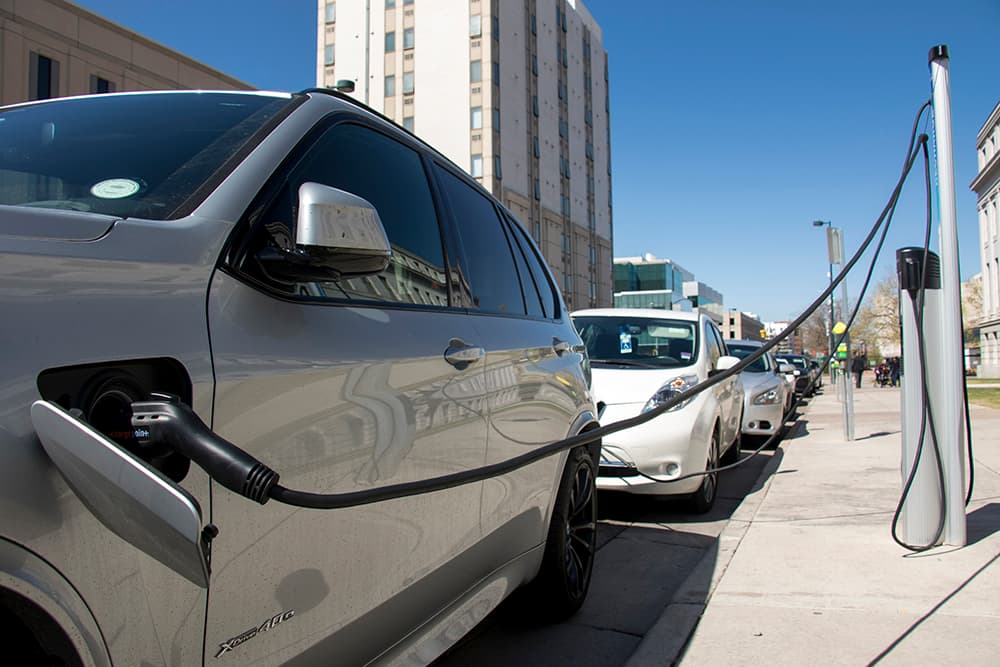The city will start replacing some of its old, fossil-fueled government vehicles with electric ones as they go out of commission, Mayor Michael Hancock announced at the annual Sustainable Denver Summit on Thursday.
The new commitment could result in as many as 850 city vehicles going electric by 2029.
"Leading the change isn't just about setting nice goals -- it's about turning those goals into the way we do business as a city. That's why we're going to make it a standard practice to replace our city fleet vehicles, where we can, with EVs," Mayor Hancock said in his speech. "This is an actionable step we can take right now to make a real impact on this issue."
The initiative is actually a step up from a "nice goal" that the mayor's office set last year in its 80×50 climate plan to have 200 electric vehicles in its fleet by 2020. The city is on track to hit that goal by the end of next year and now looks to convert the rest of the fleet as each vehicle retires. Denver replaces between 200 and 250 vehicles each year.
There are some major caveats: the city will only replace vehicles that are "EV eligible," meaning an electric vehicle has to be able to perform the same work as the one it replaces. Gas-free vehicles must cost within 10 percent of their gas-guzzling counterparts, and there has to be charging equipment available at the city property where it's housed.
The vehicle also has to actually exist in Colorado -- electric garbage trucks don't exist yet -- and be produced by an established automaker.
These self-imposed restrictions cut the numbers of vehicles that will be replaced down quite a bit. Out of the city's 3,000-some vehicles only about 15 to 20 percent of them are eligible for an electric replacement.
In most cases the limitation is technological. There are not electric snow plows or electric pickup trucks (no, Tesla's Cybertruck will not allow Parks and Rec workers to do their jobs). There are also no electric vehicles that meet the requirements for police cruisers.
The lack of eligible vehicles also limits the amount of greenhouse gas emissions that are estimated to be saved to about 11,500 tons. Many of the city's light-duty cars are already fuel-efficient models.
"You're replacing Priuses and things that are already efficient and are making them even more efficient," said Mike Salisbury, who runs the city's EV program. "That's great, but the climate benefit isn't as big. We are hoping that technology changes in the next five years and that much more of the fleet will be EV eligible."
According to Salisbury, the estimated 850 electric vehicles by 2029 is more of a floor, based on the current availability of electric vehicles, than a ceiling. The government is not limiting itself to electric vehicles and is open to other types of efficient or carbon-free technology that may emerge.
By starting the transition now, city officials are working to develop the infrastructure necessary to support as many electric vehicles as possible in the future. Getting a charger installed in a city building takes about a year, so with this new policy, agencies will have time to prepare.
"The goal is to go 100 percent electric eventually," Salisbury said. "So we are trying to get on that path and do what we can to get infrastructure everywhere."













